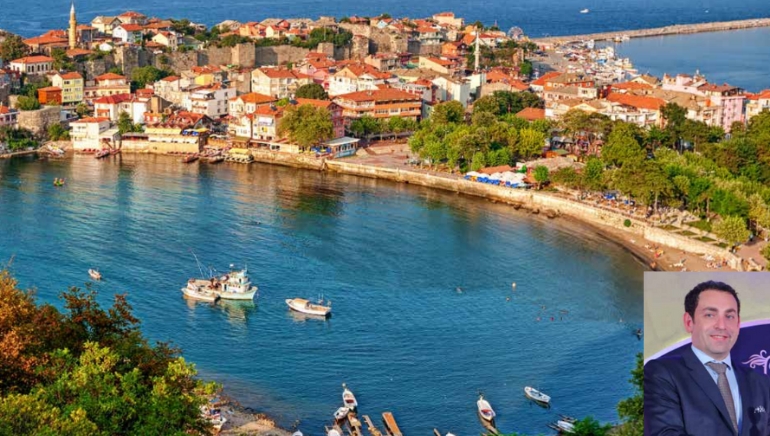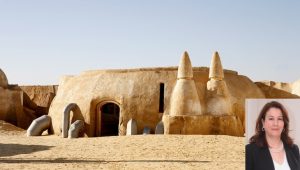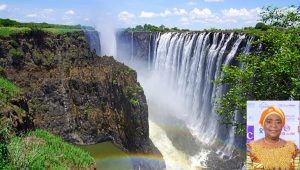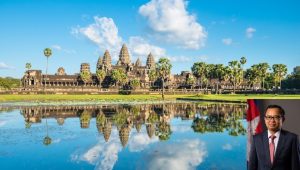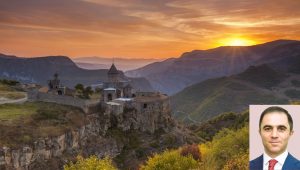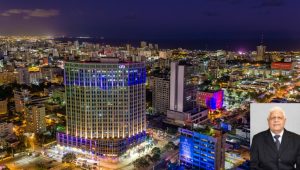One of the leading tourism destinations in the world, Turkey boasts of stunning scenery, rich historic legacy, popular holiday destinations, beautiful coastline, spectacular icons, exciting events and cultural festivals, and offers fun, joy, happiness and a never-ending journey of sensual experiences. Its ancient civilization of faith and mystery dates back to 7,000 years before the Giza Pyramids and 6,000 years before Stonehenge
By His Excellency Mustafa Ilker Kılıç, Consul General in Dubai, Republic of Turkey
“2019 has been declared as The Year of Gobeklitepe by the Turkish Ministry of Culture and Tourism”
As 2019 has been declared as The Year of Gobeklitepe by the Turkish Ministry of Culture and Tourism, the excitement level has risen, because the mysteries of Gobeklitepe are expected to encourage visitors to revel in the secrets of early humans, including the world’s first-ever temple complex, a place that will definitely change their understanding of early society. Turkey beckons all visitors to discover Gobeklitepe in all its glory.
Captivating & Contemporary
Turkey holds in its heart an intermingling of modernism and antiquity, and a mix of the East and the West. Turkish people are fun-loving and have imbibed a vivid lifestyle, a rich variety of cultures and traditions, because of their centuries-old customs blended with the recent heritage. It proffers a great deal of exotic and surprising experiences, which are also reassuringly familiar.
No doubt, Turkish culinary is world-famous as it is considered to be one of the three main cuisines of the world owing to the variety of its recipes and flavours. One would always find fresh, local, regional, and seasonal items cooked by heart, as Turkish people are passionate about food and draw their inspirations from various corners of the former Ottoman Empire. One would love the traditional Raki drink, local beer, Turkish tea, Turkish coffee, Ayran, cherry juice, and peach nectar.
Culture & Art
Accommodating the extremes of Eastern and Western culture, Turkish culture is unique in the world, as it carries harmony in diversity. Turkish people accept everyone for who they are: whatever religion you are from, whichever country you come from, whatever language you speak, you are God’s Guest. Turkish people are very friendly and go out of their way to assist and happily spend time chatting with visitors.
Turkey has been home to all three great revealed religions of Islam, Judaism, and Christianity for centuries and remarkably is also the only Islamic country that is a secular state. Minorities are respected, and the Constitution guarantees freedom of religion and the right to worship. This religious diversity has been preserved since the Ottoman Empire, and people of many different faiths have continued to live harmoniously.
The Turkish language is the world’s 7th most widely used language, and about 70 other languages and dialects are also spoken in Turkey. Turkey has a rich musical tradition, and its music forms great examples of a mix of cultural influences, comprising Turkish folk, classical and pop music, as well as military and mystical sounds, as it lies at the axis of the cultures of East, West, Mediterranean, Middle East, and Islam. Some distinguished music festivals of Turkey include the Aspendos Opera, Ballet Festival, and Istanbul Music and Jazz Festivals.
Turkey is often called an open-air museum of the world’s great architecture, possessing buildings from Hellenistic, Roman, Byzantine, Seljuk, Ottoman, and modern Turkey. The traditional houses are influenced by climatic factors, natural resources, and the old Turkish culture brought from Central Asia by the Turks. In North Anatolia, visitors would find the wooden houses from rich forests alluring; in Central Anatolia, the stone and sun-dried brick houses; in West Anatolia, stone houses would entice them; and in South Anatolia, stone and wooden houses are engrossing.
The history of the people, their legends, their mysticism, and the stories of political and social changes have been preserved through the rich Turkish literature, which may be divided into three periods: the period up to the adoption of Islam, the Islamic period, and the period under Western influence. The oldest literary legacy of the pre-Islamic period is the Orhon inscriptions in northern Mongolia, written in 735 on two large stones in honor of a Turkish king and his brother.
Yasar Kemal was one of Turkey’s leading writers, who received 38 awards during his lifetime and was also a candidate for the Nobel Prize in Literature for Ince Memed. The Nobel Prize in Literature for 2006 was awarded to the Turkish writer Orhan Pamuk. Other world-famous Turkish writers include Atilla Ilhan, Aziz Nesin, Elif Safak, and Nazim Hikmet. Turkey’s unique traditional sports include camel wrestling, historical Kirkpinar oil wrestling, Kafkasor bullfighting, and the game of jereed.
Tourism Opportunities
Some of the main tourism destinations of Turkey include the following:
Kabak Bay: Adventurous visitors would love to visit the tranquil Kabak Bay and may also go for a hike.
Butterfly Valley: The charming Butterfly Valley offers you options to laze around in a hammock, explore various exotic drinks, or enjoy campfire and music.
Patara: It is the longest beach in Turkey, and watching the sunset and the moonrise simultaneously from the top of a dune is absolutely enchanting.
Princes’ Island: Visitors love this place for its tranquility, as horse-drawn carriages and bicycles dominate the area, not motorized vehicles.
Cappadocia: One would definitely find this place, evolved out of volcanic eruptions, deeply attractive.
Mount Nemrut: This is a historic site and is considered the 8th wonder of the world, boasting a huge statue of King Antiochus I Theos of Commagene, flanked by two lions, two eagles, and various Greek and Persian gods.
The City of Ephesus: It is an ancient city full of ruins, where structures such as the Great Theatre and the Library of Celsus would be fun to visit. It is also a modern, active commercial center.
The City of Izmir: The third-largest city in Turkey, it is a frontier and sunshine city surrounded by mountains and bays, famous for figs, olives, and grapes.
Topkapı Palace: Visitors who find historical places attractive would find it spellbinding. Built in the 15th century, the palace remained both the symbolic and political home of the Ottoman Empire until 1853 and was converted into a museum after the fall of the Ottoman Empire in 1924.
Ani: Famous as the ancient ghost city of Turkey, it boasts extraordinarily beautiful churches and striking surroundings. The ruins of Ani are included in the UNESCO World Heritage sites.
Pamukkale: Literally meaning “cotton castle” in Turkish, it is loved by tourists from all over the world because of its cotton-look terraces—surreal, brilliant white travertine formations.
Selimiye Mosque: Located in the European part of Turkey, it has political and religious significance. Built in the Ottoman and Islamic architectural style, it was designed by one of the most distinguished architects of the Ottoman Empire, Mimar Sinan. The Selimiye Mosque and its Social Complex have been recognized as a World Heritage site by UNESCO.
Erzurum: Considered a paradise for architecture lovers, it features incredible Seljuk, Saltuk, Mongol, and Ottoman mosques and seminaries, surrounded by mountains and steppes.
Sumela Monastery: Considered one of the oldest monasteries in the world, its construction dates back to the 4th century. It is stunning in its style, standing on the cliff of Zigana Mountain and dedicated to the Virgin Mary.
Aladağlar National Park: Sprawled over 55,065 hectares, it is a mountainous park established in 1995 and is known as the “Alps of Turkey.” Visitors love it for trekking, hiking, and mountaineering sports.
Ankara: It is the capital of Turkey and its second-largest city. Located in the heart of the Eastern Edge of the great High Anatolian Plateau, it is known for its beautiful, expansive yellow wheat fields, young volcanoes, and vast steppes.
Bodrum: Once a pleasant fishing village of a few thousand people, Bodrum has transformed into one of the most popular vacation hotspots in Turkey. One must visit Bodrum Castle, the Museum of Underwater Archaeology, Myndos Gate, and the ancient Bodrum Theatre.
Akdamar Island: Situated in Lake Van, though its famous attractions are in ruins, one must visit the Holy Cross Church and other Armenian monasteries. The famous Akdamar Church has been transformed into a museum, with relief carvings on the exterior walls depicting Biblical scenes with Adam, Eve, Abraham, Jesus, David, and Goliath. The island is surrounded by steep rocks and mesmerizing almond trees.
Çanakkale: It holds the Gallipoli battlefields and the ruins of Troy, connecting the Marmara Sea and the Aegean Sea. The famous Archaeological Site of Troy is also included in the UNESCO World Heritage Cultural List.





